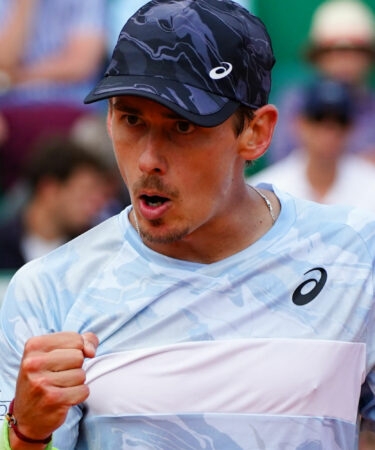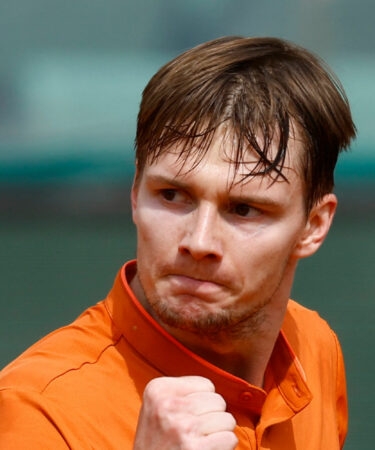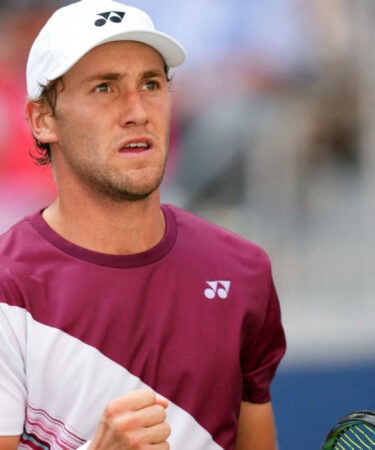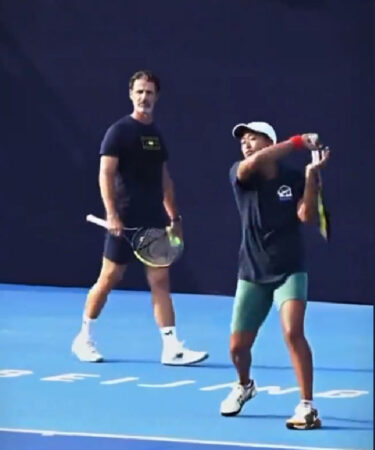Sudden death gives UTS an added dimension
Trying to win two consecutive points for victory is a lot more difficult than it sounds, especially after four gruelling quarters
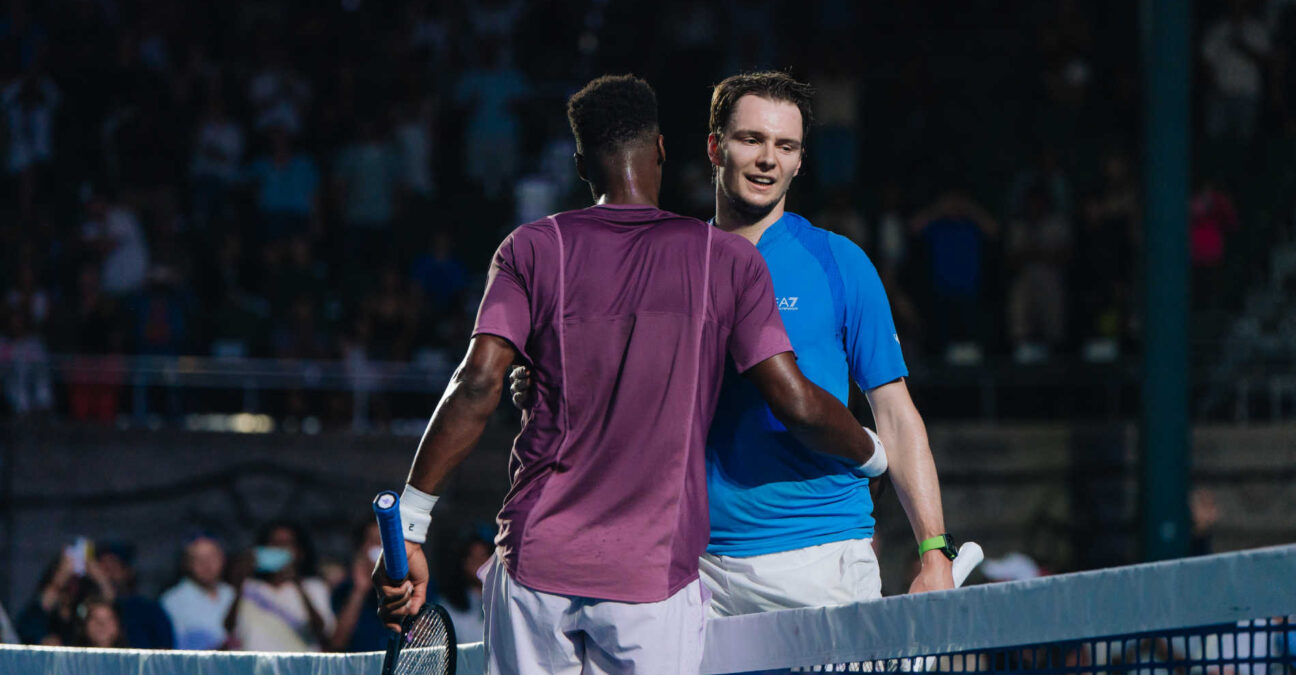 Alexander Bublik and Gaël Monfils, UTS New York 2024 | © Tennis Majors / UTS
Alexander Bublik and Gaël Monfils, UTS New York 2024 | © Tennis Majors / UTS
When Patrick Mouratoglou came up with the innovative idea of splitting a tennis match into four timed quarters at the inception of the UTS, he knew he had to find a way to decide the outcome in the event that any clash finished tied at two quarters apiece.
The options in tennis in these circumstances are fairly limited, but rather than throw in a conventional tiebreak, or perhaps a first-to-10 tiebreak (as used at 6-6 in the final set of Grand Slams), he needed something slightly different, something shorter, more dynamic. Welcome, sudden death.
“The sudden death, for me, are key moments,” Mouratoglou says. “I think it’s something so special, so unique. We had an incredible one between Stefanos Tsitsipas and Alexander Bublik, incredible, with six match points each I think. Crazy and the crowd was nuts.”
Sudden death format = extra tension
Instead of a usual tiebreak, the sudden death format is extra dynamic, and usually, extra quick. That’s a necessity after the intensity of four eight-minute quarters, but it also means every point is crucial. Players take turn to serve, and after the winner is the first player to win two consecutive points. That means, therefore, that after the first point, every subsequent point is a match point for one of the two men.
Usually exhausted after getting to the end of the four quarters, players have to get themselves going again, and if anything, step up the intensity, knowing that one lost point can be their downfall. With just one serve, that could be a double-fault and knowing how to handle the stress is crucial.
Sudden death kills me. It takes five years off my life every time
Alexander Bublik
In UTS New York, Alexander “The Bublik Enemy” Bublik revealed what players – or at least he himself – go through when they find themselves in sudden death. The Kazakh won the longest sudden death in UTS history but it took a lot out of him.
“That was the most nervous match for me I ever played because the sudden death kills me,” he said. “It takes five years of my life every time. I have played two. So minus 10 probably after your life.
“Given the fact that it’s not an official tour, there is not much on the line, but for me, I don’t know why, but I feel such a need in these wins, like at this format, especially. I had less tension when I was playing for the for Halle title.”
Better to attack or play safe?
Depending on a player’s nature, they will enter sudden death with a particular mindset; for some, going for it is the answer; for others, playing safe, trusting their wheels and waiting for a mistake is their best bet. In sudden death, though, aggression, or at least intent, is usually rewarded.
“I felt the urge to try to do something because you don’t want to be stuck in a defensive situation,” Stefanos Tsitsipas – “El Greco” – said after one sudden death experience, one he actually lost. “I have a pretty good record in it, this was one of the very few I’ve lost so far. I feel like I can really produce good tennis when it comes to sudden death I really go for my shots and I try and use my biggest weapons to create some stressful situations for the opponent.”
You can’t allow your mind to wander
Stefanos Tsitsipas
One of the broader thinkers on Tour, Tsitsipas said keeping your mind free of clutter, when it comes to sudden death, is an absolute necessity.
“It’s different because of the shorter attention span.” he said. “You have to be really in the moment, you can’t allow your mind to wander too much. I think that’s what makes it exciting. You have to try and keep your serve once and have a good return in that moment. That’s what I like.”
Some are better at sudden death than others
Since UTS Los Angeles in 2023, players’ statistics have been logged on the UTS website and the sudden death records make for fascinating reading.
Four players have won 100 percent of their sudden death battles (players have to have played at least two to be included); Alex de Minaur – “The Demon” – Andrey Rublev – “Rublo” – Casper Ruud – “The Ice Man” – and Holger Rune – “The Viking”.
At the other end of the scale, Tsitsipas has lost both of his sudden death encounters (the good record he mentioned was from his first UTS experiences in 2020). Benoit Paire – “The Rebel” positively hates sudden death, having won just 17 percent of the time (one in six). Bublik, Diego Schwartzman – “El Peque” and Gael Monfils – “La Monf” – have only won 33 percent of them.
There is, of course, no way to be sure of success in sudden death. Perhaps the best way is not to play it at all, as Jack Draper managed when he won all five matches in regulation time to win the UTS Grand Final in London at the end of 2023. Easier said than done!
People in this post
More tennis news
“Shame” – Zverev regrets losing Rio quarter-final to Comesana from a “winning position”

Alexandre Muller defeats Cerundolo, reaches first ATP 500 semi-final

February 22, 2007: The day Wimbledon finally announced it would award equal prize money

Francisco Comesana stuns Zverev to reach Rio final four

Rio Open: Lucky Loser Ugo Carabelli makes semi-finals





